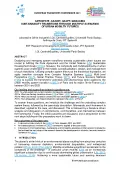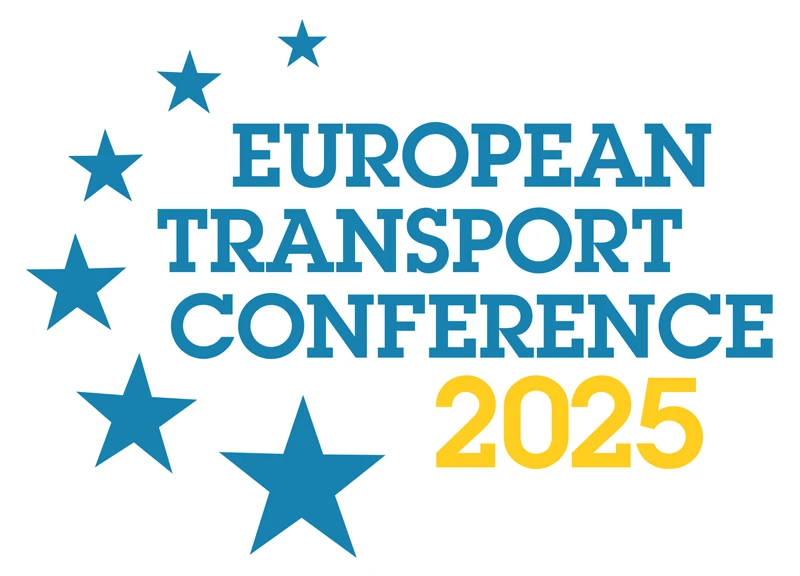-
Past ETC Papers

Browse, search and view papers from the past AET Conferences.
-
Members' Area

AET promotes networking and exchange of ideas, information and opportunities amongst members.
Conference Papers 2021
Online
ETC Conference Papers 2021
Anticipate, Adjust, Adapt: Managing Sustainability Transitions through multiple Scenarios of Urban Mobility Futures
Seminar
Day 3 (15 Sep 2021), Session 9, TRANSPORT DECARBONISATION AND RENEWABLE TRANSPORT FUELS, 16:00 - 18:00
Status
Accepted, documents submitted
Submitted by / Abstract owner
Tjark Gall
Authors
Tjark Gall, Flore Vallet, Sylvie Douzou, Bernard Yannou
Short abstract
Managing complex transitions towards sustainable futures is crucial. We build on futures studies and multi-level transition theory to explore extensions and apply them to urban mobility, resulting in a framework and exploratory case of Paris.
Abstract
The planet is at the brink of an environmental abyss resulting from centuries of increasing resource depletion, environmental degradation, and widespread pollution. Mobility constitutes a significant accelerator to the complexity of the challenge – in particular urban mobility as increasingly significant subsection thereof due to continuously dominating global urbanisation.
Achieving a more sustainable future and averting imminent disasters requires an urgent and significant system transition. The importance does not solely lie within the environmental dimension of sustainability, but also in the social. Urban mobility defines the varying levels of access to opportunity and facilities within urban areas, of exposure to and integration within the society, and hence manifests diverse shapes of spatial inequalities.
Approaching this challenge in a structured and systematic approach is central to increase the potential of success of risk aversion. However, three challenges are inherent: (1) Defining the extent and dimensions of the urban mobility system at stake; (2) Working effectively with highly uncertain futures; and (3) Identifying, analysing, and enabling sustainable transition pathways.
The goal of this paper is the combination of transformation and alternative-building theory and concepts from the future studies field (building on Dator and Inayatullah) with system transitions to provide a framework for achieving sustainable urban mobility futures.
Underlying is the conceptualisation of urban mobility as complex adaptive system and socio-technical regime, constituted of technology, policy, society, culture, science, markets and user preferences, within a multi-level perspective (MLP; building on Geels, Rotmans, Sovacool). Additionally, the earlier MLP models are extended by a multi-agent-based perspective allowing for agency of mobility users (building on Shove, corrective responses of Geels, as well as conceptual extensions by Whitmarsh, Köhler, and Grin, among others).
The particular focus is the conceptual combination of multiple, yet normative scenarios (e.g., continued growth, collapse/decline, conserver/disciplined society, and high-tech transformation) and accompanying transformative tools such as backcasting with sustainable transition management elements, such as transition visions, images, pathways (Reproduction, Transformation, De-/Re-alignment, Substitution, Reconfiguration), and experiments.
While both theoretical perspectives and their respective methods have found ample application in the field of urban mobility, we identified a gap in the harmonisation of the corresponding core elements, namely the MLP and multiple sustainable pathways on the one hand, and multiple future scenarios and their trajectories on the other hand.
The paper will describe the constituents, their potentials and limitations, and the added value of the joined application. The latter will lead to an updated framework for conceptualising and managing transitions to sustainability urban mobility futures. Examples, references, and applications are made in the context of the ongoing research of the Anthropolis Chair which works towards human-centred urban mobility futures, and in particular towards future scenarios of territories with exemplary application in the Île-de-France region. However, the methodological elements and global trends are kept as universal as possible to ensure its applicability across geographical and socio-cultural contexts.
Programme committee
Global Trends Impacting Transport
Topic
The Climate Emergency
Documents:

Association For
European Transport
Forester House
Doctors Lane
Henley-in-Arden
Warwickshire, UK
B95 5AW
+44 (0) 15 64 793552
VAT number: 710 1866 64
Conference Supporters & Endorsers




Legal Entity
The Association for European Transport is registered as an Association ('vereniging') with the Chamber of Commerce for Haaglanden in The Netherlands under company number 27170096.
Built on Zenario




